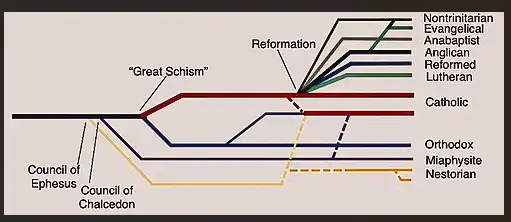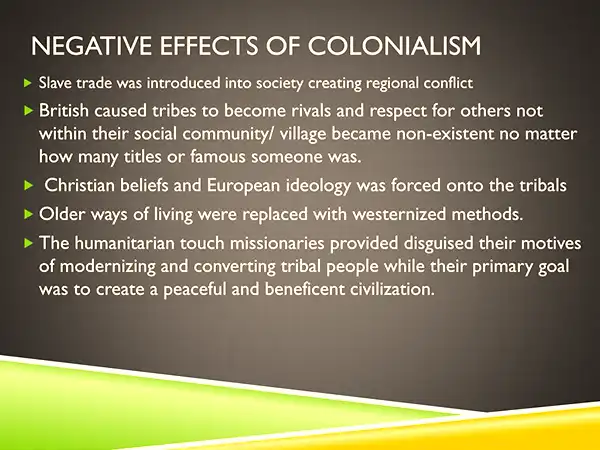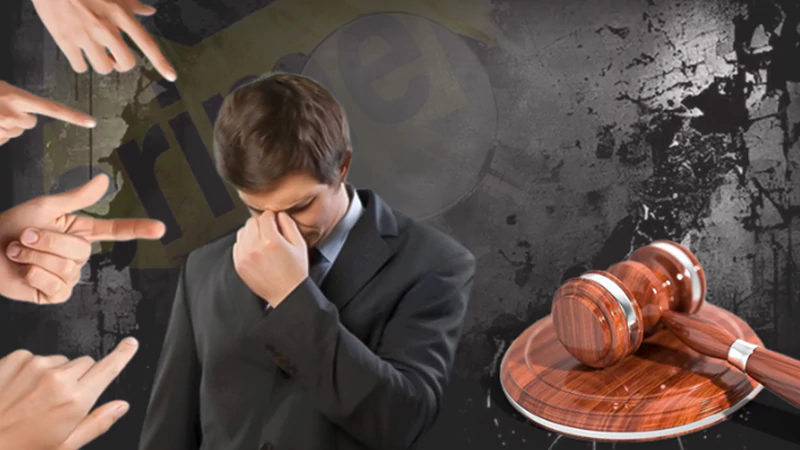Exploring the Historical Roots: Why are Christians Persecuted?
KEY TAKEAWAYS
- Since the Roman Empire and the rise of Christianity have divided Christians into several denominations.
- Colonization in underdeveloped nations was a major factor that spread Christian beliefs to the eastern continents.
- Digital hackers misuse social media platforms to spread fake news leading to growing intolerance between Christians and other religions.
The persecution of Christians is a historical phenomenon that spans centuries and continents. From ancient Rome to modern-day conflicts in the Middle East, Christians have often found themselves targeted and oppressed for their faith. This enduring pattern raises many serious questions.
Why are Christians persecuted? The reasons are complex, surrounding a range of historical, social, political, and religious factors that have shaped the fate of Christian communities across time.
1. Early Christian Persecution: Roman Empire and Beyond
The roots of Christian persecution can be traced back to the early days of the faith. In the Roman Empire, Christians were often seen as a threat to the established social order and religious practices.
The refusal of Christians to participate in state-sanctioned pagan rituals and their exclusive worship of a single God clashed with the belief that there is more than one God. This led to irregular but often brutal waves of persecution, during which Christians were subjected to imprisonment, torture, and death.
The Roman authorities viewed Christianity as challenging their authority, as it advocated loyalty to a higher power above the emperor. This refusal to pay homage to the emperor as a deity was considered treason, leading to suspicions and anger toward Christians.
2. Religious Intolerance and Power Struggles
Throughout history, the persecution of Christians was not only rooted in religious differences but often mixed with political motivations and power struggles. The rise of Christianity challenged the religious status quo, leading to conflicts with existing religious institutions and their followers. In societies where religion and politics were deeply connected, the spread of Christianity was seen as a damaging force.
During the Middle Ages, for example, Christians faced persecution during the Spanish Inquisition and other occasions of religious intolerance. Political and religious leaders sought to strengthen their power by implementing religious unity and suppressing any disapproving beliefs, including those of Christians who did not align with the dominant church.
3. Clash of Civilizations: East vs. West

The diversity of Eastern and Western Christianity also played a role in the persecution of Christians. The Great Schism of 1054 divided the Christian Church into the Roman Catholic Church in the West and the Eastern Orthodox Church in the East. This division not only led to theological differences but also contributed to political and cultural conflicts.
In regions where Eastern Orthodoxy dominated, such as the Byzantine Empire, tensions between Orthodox Christians and other religious groups often led to persecution. Similarly, in the Western world, conflicts between Catholics and Protestants fueled persecution, such as the Protestant Reformation in the 16th century, which saw both Catholics and Protestants targeted by opposing factions.
4. Colonialism and Cultural Imperialism

The era of European colonialism brought Christianity to new corners of the globe, but it also introduced complex power dynamics and cultural clashes. As European powers established their authority over vast territories, they often imposed their religious beliefs and practices on indigenous populations. This imposition of Christianity was sometimes met with resistance, leading to violent clashes and persecution.
Colonial powers used Christianity to assert control, often suppressing indigenous religious practices. This resulted in a perception that Christianity was intertwined with an oppressive foreign rule, leading to outrage and resistance from the colonized populations.
Modern Persecution: Political and Religious Extremism
In the modern era, Christian persecution continues in various parts of the world, often fueled by political extremism and religious intolerance. In regions such as the Middle East and parts of Africa, religious minorities, including Christians, have become targets of violence and displacement due to conflicts involving religious and ethnic identities.
Political ideologies, such as extremist versions of Islam, have contributed to the persecution of Christians in certain regions. Christians are sometimes seen as representing Western values or as potential allies of rival groups, making them vulnerable to political turmoil.
THINGS TO CONSIDER
Sometimes, security agents hack into the Facebook accounts or emails of Christians and post damaging or offensive things online, but, more commonly, they use a network of fake or anonymous accounts to share false stories of infidelity or corruption in order to ruin reputations.
Final Thoughts
While the historical context and motivations behind Christian persecution have evolved, the enduring resilience of Christian communities in the face of adversity is a testament to the power of faith and the human spirit.
As societies grapple with religious diversity, cultural pluralism, and political conflict, understanding the historical roots of Christian persecution can provide valuable insights into the complexities of religious intolerance and the ongoing struggle for religious freedom and coexistence.








